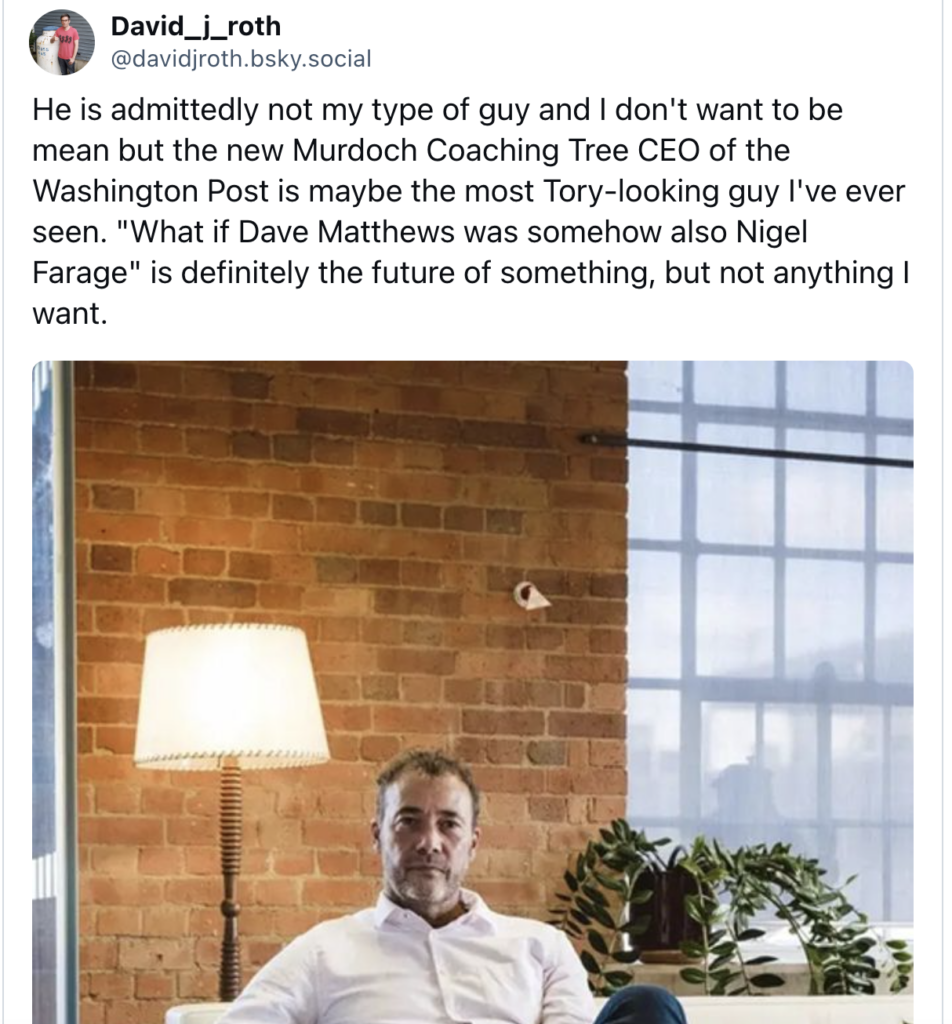Fleet Street ethics at the Washington Post

Cheryl briefly noted this story as an update, but worth noting for those who missed it that the Will Lewis story is getting sketchier by the minute:
Will Lewis, the chief executive of The Washington Post, repeatedly offered an exclusive interview to an NPR reporter if the reporter agreed not to write about allegations against Mr. Lewis in a phone-hacking scandal in Britain, according to an account by that reporter published on Thursday.
David Folkenflik, a veteran media reporter for NPR, wrote that a spokesperson for Mr. Lewis confirmed the offer in December. That spokesperson declined to comment when approached again Thursday, according to NPR.
“In several conversations, Lewis repeatedly — and heatedly — offered to give me an exclusive interview about the Post’s future, as long as I dropped the story about the allegations,” Mr. Folkenflik wrote.
A spokeswoman for Mr. Lewis said that “when he was a private citizen ahead of joining The Washington Post, he had off the record conversations with an employee of NPR about a story the employee then published.” The spokeswoman said any interview requests with Mr. Lewis after he joined The Post were “processed through the normal corporate communication channels.”
“All non-denial denials. They doubt our ancestry, but they don’t say the story isn’t accurate.”
The bigger problem is that Lewis was presumably hired more because of his willingness to do shit like this — in this case both the initial misconduct as well as the clumsy attempts to shield it from scrutiny — rather than in spite of it. It’s all a very bad sign, as a story he let through explains:
Many in The Post newsroom found the accounts dismaying. A publisher and CEO oversees the entirety of a newspaper but traditionally does not direct or oversee decisions about what to report.
It is considered a third rail in journalism for business-side leaders to intervene or attempt to influence coverage in their own publications, particularly when it concerns them and their own interests, said Kathleen Culver, director of the Center for Journalism Ethics at the University of Wisconsin-Madison.
“The firewall exists to protect the credibility of the news coverage,” she said. “It’s there so people can’t peddle influence that ultimately keeps important information from readers or viewers.”
